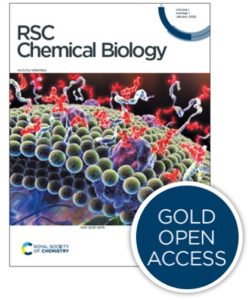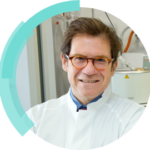RSC Chemical Biology is delighted to welcome papers for its latest online themed collection on the ‘Development of bio-orthogonal tools’, guest edited by Professor Chengqi Yi (Peking University, China) and Professor Yan Zhang (Nanjing University, China).
Scope
We would welcome submissions on bio-orthorgonal chemistry, reactions and probes in labeling, manipulating, imaging and sequencing of protein, DNA, RNA and bioactive metabolites.
The deadline for submissions is 30 April 2022.
Promotion of the collection is scheduled for summer 2022, articles will be published online as soon as they’re accepted.
Authors are welcome to submit original research in the form of a Communication or Full Paper. Articles can be submitted via our website: rsc.li/rsc-chembio. We would be grateful if upon submission you would be able to mention that your manuscript is intended for this themed collection in the “notes to the editor” box.
Please note that before a final decision is made, all submissions are subject to an initial assessment to confirm the manuscript’s suitability for full peer review.
If you have any questions about the journal or the collection, please contact the editorial office via chembio-rsc@rsc.org.
With kind regards,
| Professor Chengqi Yi
Peking University, China |
Professor Yan Zhang
Nanjing University, China |
About RSC Chemical Biology
Led by Hiroaki Suga (University of Tokyo), RSC Chemical Biology is dedicated to publishing and disseminating the most exceptionally significant, breakthrough findings of interest to the chemical biology community. All submissions are handled by our experienced and internationally recognised Associate Editors. For more information on the journal, please visit the journal homepage.
As a gold open access journal, there are no barriers to accessing content and your research article will reach an international audience. Please note that the article processing charges are waived until mid-2022, so the journal is currently free to publish in.
RSC Chemical Biology is now indexed in the Directory of Open Access Journals (DOAJ), PubMed Central, Scopus and Web of Science: Emerging Sources Citation Index. Find out more about the journal and submit your work at rsc.li/rsc-chembio
Royal Society of Chemistry
























